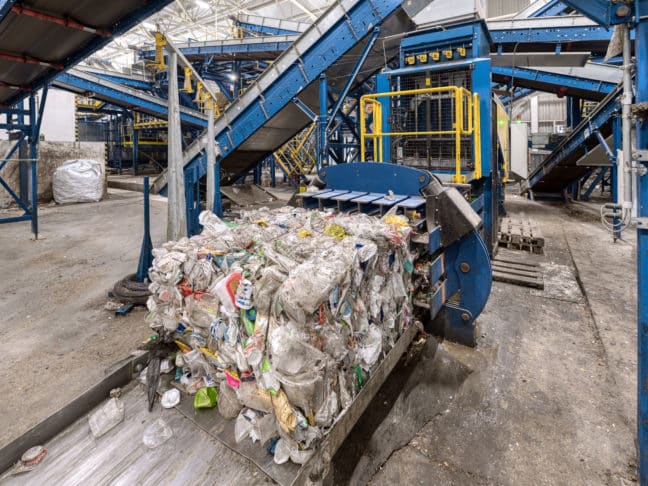How to Choose the Right Industrial Baler
March 28, 2022
Select the right industrial baler for your business.
Businesses that generate a lot of waste such as packaging, cardboard, plastic P.E.T. bottles, aluminum cans, magazines, office paper, newspaper, paper cartons, e-waste, textiles, or clothing benefit significantly from the industrial compaction advantages a baler provides. Select the right baler style for your business needs depends on the results you require.
Questions to Ask Before Selecting an Industrial Baler
There are many different types of industrial balers within the industrial marketplace. Whether it’s a large, medium, or small baler, each provides significant beneficial features. Some of the questions to ask before making a purchase may include: What style baler is best for my waste compaction needs? What size industrial baler does my business require? Does my business require a baler with special features?
Considerations When Selecting an Industrial Baler
Several considerations should be made prior to choosing an industrial baler. Factors such as baler size, cost analysis, materials that will be processed, the quantity of materials processed, and safety concerns should all be addressed before making any final decisions.
Baler Size Requirements
Baler size is always an essential factor. How big or small your baler needs to be is based on the amount you will be using it. If you only produce a few bales each week, you will most likely be fine using a smaller baler. But, if you process a significant number of bales per week, you will need to look at the larger baler models. If your business’s production space is located on a smaller footprint, extra space must be necessitated once the bale is ejected from the baler.
Understanding Your Baler’s Material & Quantity Requirements
Understanding the types and volumes of materials that your baler will process will assist in determining which baler style is suitable for your project needs. For example, horizontal balers are most used by more extensive processing facilities because of the high daily volume of material moving through the facility. Choosing a particular baler model, such as single-ram versus two-ram, is primarily based on the specific mix of material received and how it will be most efficiently processed.
Industrial balers come in a broad range of sizes to accommodate all material quantities. Before purchasing an industrial baler, it is crucial to understand your material quantity processing needs not to overpay or underpay based on material processing requirements. Choosing the right system can help your company ship its waste and recycling more economically and reduce the need for pickup.
Baler Lifespan & Cost Considerations
As touched on above, larger balers can cost significantly more than smaller ones. Balers come in a wealth of sizes and can run anywhere from a thousand dollars to hundreds of thousands of dollars. The price corresponds to the complexity and amount of material the baler can process. Due to the investment costs associated with industrial balers, it’s essential to understand their lifespan expectations before making a purchasing decision.
Baler Safety Aspects
Due to the nature of the business and the processed materials, waste management often can produce hazardous environments where safety precautions are necessary for protecting human life. Modern industrial balers are constructed with top-tier materials and feature various safety implementations designed to keep operators safe. However, a baler consists of many moving parts and crushing rams that can be dangerous or deadly if operated incorrectly. Safety considerations and training should be implemented prior to use to ensure proper employee working conditions.
Industrial Baler Options
Balers help pack large quantities of recyclable material into condensed packages for more accessible storage and cargo. They also allow for increased commodity values by maximizing the value of each bale. Typically, balers crush recyclable materials such as cardboard, paper, plastics, and metals. Typical industrial baler options include:
- Vertical Balers – Compresses materials into compact bales. Well-suited for small to medium material handling and recycling centers/small volume capabilities.
- Horizontal Balers – Materials are inserted into one side of the baler, compacted, and ejected through the opposite side. Requires more floor space than vertical balers.
- Auto-Tie Balers – Ideal for managing large quantities of materials. Available in single ram or double ram options.
Equipment Market Pros is your trusted source for the best new and used balers. Contact us for more information on buying and selling new and used industrial balers. Our industry-specific data consists of research and development that targets your consumer base.